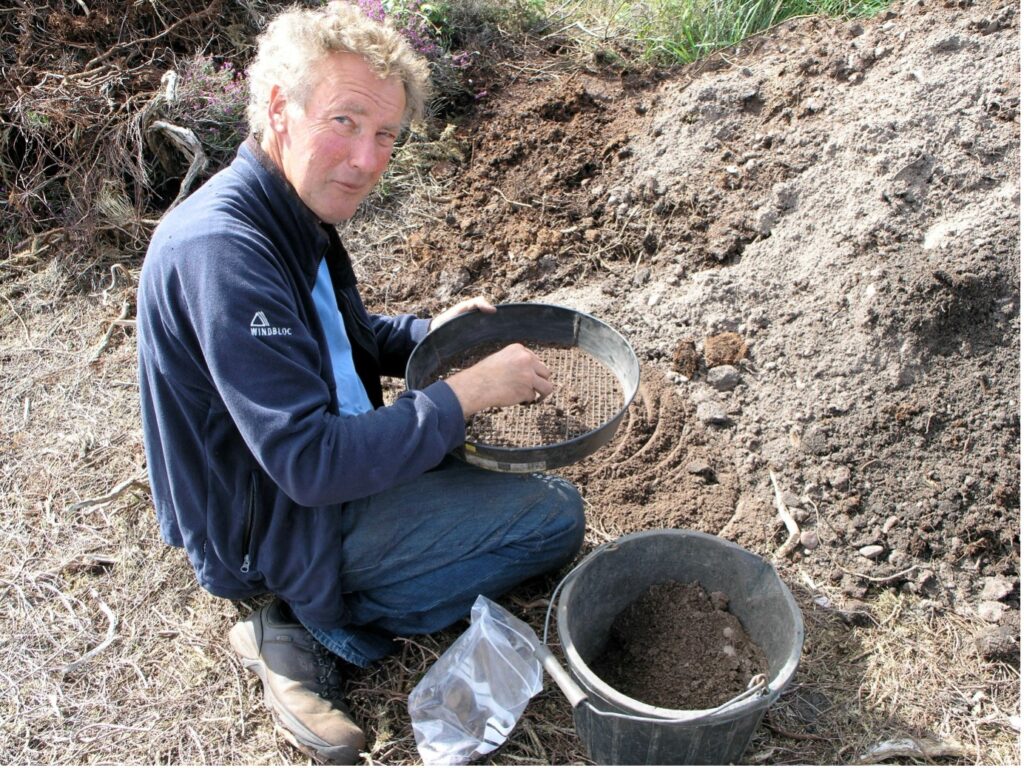In Memoriam of Chris Y. Tilley (11/09/1955—10/03/2024)
P. Laviolette, Masaryk University, Brno
When we were about fourteen years old, my two best mates and I ventured over to the house of one of our teachers late at night. He was responsible for teaching moral education instead of religion per se, and we actually liked him. Our mission was simple: to toilet paper his car. That is, to wrap it up completely in kitchen and bog roll. The end result was rather accomplished since we even managed to get the exhaust pipe, windscreen wipers and the aerial for the radio. There were no immediate recriminations, but some fifteen years later this innocent bit of fun would come back to haunt me.
I was having dinner with a group of anthropologists from University College London. They had been involved with a five-year British Academy-funded landscape archaeology project on Bodmin Moor in Cornwall, the southwestern extremity of the UK. They had devised ways for making certain features in this often grey and gloomy prehistoric landscape stand out, for better recognition and interpretation. They were equally interested in fitting their scientific techniques into a discourse about environmental or land art à la Andy Goldsworthy; Richard Long; Christo and Jeanne-Claude.
Two of these people, Barbara Bender and Chris Tilley, were socio-cultural theorists. Over a curry and some wine, they described a process of wrapping large menhirs and standing stones in cling film, painting them in bright colours, taking photographs and then removing the plastic shell, leaving the stones unscathed. They then asked if I could think of any other ways of highlighting the stones, or making temporary art out of them. ‘Well, you could always mummify them in loo roll,’ I blurted out, with what must have seemed like an increasingly stupid grin on my face, realising that everyone had suddenly gone silent at the non-deliberate insinuation that such environmental art was a load of crap. Of course, I must have intuitively known that what I was about to say would most likely come across as childish or insulting. Yet, somehow, I could not resist. It was an ‘instinctive’, or better still, a reflex reaction from the memory of a juvenile prank more than a decade old.
I cannot remember much else worth noting from the rest of that evening. It is still a mystery to me, however, why I was asked to participate in the Leskernick Landscape Project on Bodmin Moor. And why Chris Tilley would later agree to supervise my PhD thesis. Perhaps he appreciated the irreverence. In fact, that was most certainly why.

At the end of March of this year, I did something that should have only occurred in another fifteen- or twenty-years’ time – I attended Chris’ funeral in Brighton. As a diabetic, he had had some rather serious health issues for some years. Yet he always seemed to be intellectually active during his stints of illness. As his daughter Alice reminded us at the reception after the funeral, Chris was many different things to many different people: father, mentor and Marxist – an avid walker and gardener, a ferocious reader and writer, a sharp critic who could also show empathy when it was needed. If his personality was enigmatic, then his friend and collaborator Wayne Bennet outlined those idiosyncrasies succinctly during the service’s first eulogy when he stated that not only was Chris a man of many contradictions, but he was also a man who recognised and sometimes played on those contradictions.
A lucidity of thought and ability to synthesise complex theoretical positions, however, is how many of his colleagues and former students will choose to remember him. His passion was landscape and material culture studies. Along with a cohort of scholars (mostly from Cambridge), he was behind the establishment of post-processual archaeology. He did extensive fieldwork in Sweden on Paleolithic rock art and then ventured into a comparative sociological study of allotment gardens in Sweden and Britain. He tried his hand at fieldwork overseas, in Vanuatu. But really, Chris was a Europeanist. He probably would have disliked the label and to be fair, it has never really been used to describe his research since social theorist has always seemed more apt.
Chris’ legacy will certainly be to have helped create a stable foundation for what Peter J. Ucko had already established at UCL in the mid-1970s – the comprehensive and comparative study of material culture. With monograph titles such as Reading Material Culture: Structuralism, Hermeneutics and Post-Structuralism (Oxford: Basil Blackwell, 1990); Material Culture and Text: The Art of Ambiguity (London: Routledge, 1991); A Phenomenology of Landscape (Oxford: Berg, 1994); and The Materiality of Stone (Oxford: Berg, 2004), Christopher Yates Tilley’s research will be remembered for celebrating the poetic and paradoxical, whilst remaining rigorous, politically charged and ever so thought provoking.